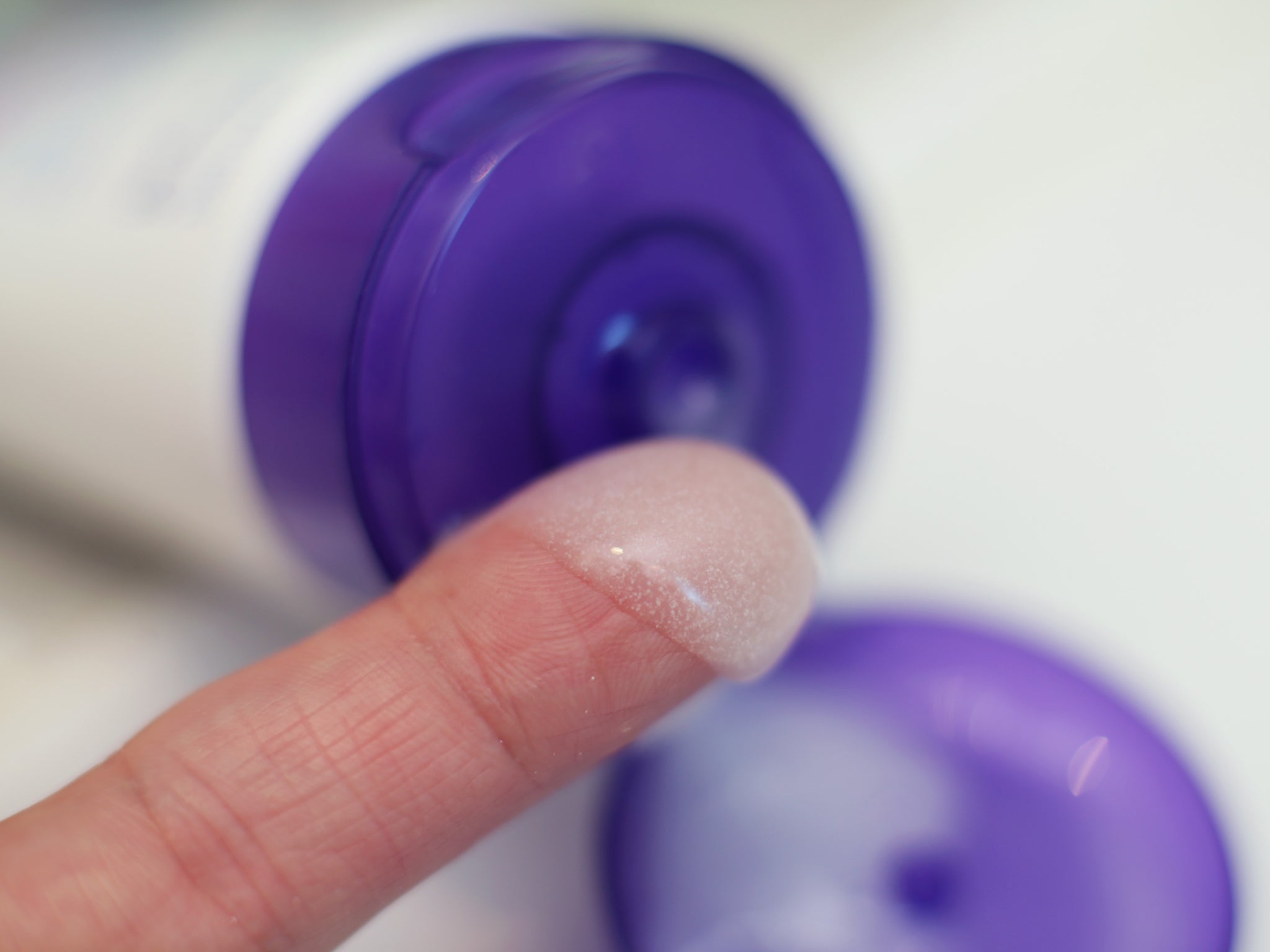Ban microbeads from all products washed down the drain, campaigners urge Government
Coalition of environmental groups call for clear and prompt timeline for phasing out the ingredients

Your support helps us to tell the story
From reproductive rights to climate change to Big Tech, The Independent is on the ground when the story is developing. Whether it's investigating the financials of Elon Musk's pro-Trump PAC or producing our latest documentary, 'The A Word', which shines a light on the American women fighting for reproductive rights, we know how important it is to parse out the facts from the messaging.
At such a critical moment in US history, we need reporters on the ground. Your donation allows us to keep sending journalists to speak to both sides of the story.
The Independent is trusted by Americans across the entire political spectrum. And unlike many other quality news outlets, we choose not to lock Americans out of our reporting and analysis with paywalls. We believe quality journalism should be available to everyone, paid for by those who can afford it.
Your support makes all the difference.Plans to ban tiny pieces of plastic that pollute the ocean should be extended to more products that people commonly wash down the drain, campaigners urged.
The Government has proposed banning the sale and manufacture of products containing plastics known as microbeads that they classify as “rinse-off” items, such as shower gel, face scrubs and toothpaste.
The move is aimed at protecting the marine environment from one source of plastic pollution, as microbeads are washed down the drain and can enter the seas and be swallowed by fish and crustaceans with potentially harmful effects.
But environmental campaigners warned the proposals risked leaving a loophole for the use of microbeads in other products that a survey found were commonly washed off down the drain by consumers.
A poll of 2,141 adults for the microbeads coalition of environmental groups, revealed that 42% of those who use face make-up such as foundation and concealer wash it off in the sink, bath or shower.
Around a third of people using lip and eye products wash them off and 60% of adults who do not wear make-up but do use skincare products such as sun cream wash them off down the drain, the survey by YouGov found.
The ban should include all products that are washed down the drain or directly discharged into waterways or the marine environment, including a wide range of cosmetics, personal care, cleaning and industrial products, the campaigners urged.
Any definition of “microbeads” should include all solid plastic ingredients smaller than 5mm that are used for any purpose, with no lower size limit in the definition and no allowance for so-called biodegradable plastics to be used as alternatives, they said.
There must also be a clear and prompt timeline for phasing out the microbead ingredients, according to the coalition made up of the Environmental Investigation Agency, Fauna & Flora International, Greenpeace UK and the Marine Conservation Society.
A statement from the groups said: “'Many countries around the world, from India to Korea to New Zealand, are now looking at banning microplastics in products that can end up in the sea, and they're looking to the UK to provide a model of how best to do that.
“By implementing a robust and comprehensive ban of microplastics in all products which can reach drainage, this government can have a truly global impact.
'We've already seen the problematic loopholes in the US legislation, which limited the ban to “rinse-off” products that perform an “exfoliating” function and ended up allowing other types of products containing microplastics to keep pouring into our oceans.
'With trillions of microplastics already in the sea, this really is a global issue and the British Government must seize the opportunity to create a world-leading ban.“
PA
Join our commenting forum
Join thought-provoking conversations, follow other Independent readers and see their replies
Comments